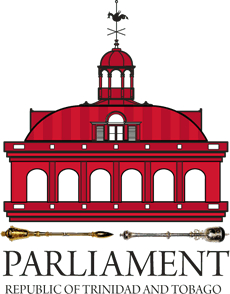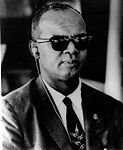Eric Eustace Williams was born out of humble origins in Port-of-Spain, Trinidad on September 25th, 1911. He was the eldest son of 12 children to Henry and Elisa Williams. He began his education at Tranquility Boys Intermediate and won a college exhibition in June 1922 at the age of 11. He then went on to attend Queen’s Royal College where he excelled both in the classroom and on the playing field.
While employed as a temporary master at QRC, He won the Island Scholarship which allowed him to leave Trinidad the following year to study history at Oxford University. He graduated three years later at the top of his class and was awarded a first class Honours degree. He then decided to pursue his doctorate which he attained in 1938. The twenty seven year old Williams was then made an honorary fellow of St. Catherine’s College, awarded an honorary degree of Doctor of Civil Law from Oxford, an honorary degree of Doctor of Law from New Brunswick and an honorary degree of Doctor of Letters from the University of the West Indies. His doctoral thesis was called “The Economic Aspect of the West Indian Slave Trade and Slavery”. While working on his thesis, he was awarded numerous other prestigious awards including the Leathersellers exhibition (1936), a University Students’ Scholarship (1936-38) and Beit Fund grants. In addition he was awarded the Julius Rosewald Fellowship (1940-42).
Soon after completing his doctorate, Dr. Williams was appointed assistant professor of social and political science at Howard University in Washington D.C. (1939). Just a few years later he was promoted to associate professor for the University and by 1947 he was appointed a full professor. His position with Howard allowed him to travel and continue his research. He travelled to Cuba, Haiti, the Dominican Republic and Puerto Rico and it was this exposure to these non- British Caribbean islands that provided him with further literary stimulation and led him to publish “The Negro in the Caribbean” in 1942.
While still at Howard, Dr. Williams volunteered as a consultant to the Anglo-American Caribbean Commission. This body aimed to strengthen economic and social cooperation in the Caribbean between the United States and the UK in the context of war time needs. By 1948, Williams was appointed head of the research branch of the Secretariat and Deputy Chairman of the Caribbean Research Council. However in a controversial twist of fate, in 1955 his contract was not renewed which allowed him to return to Trinidad and become more involved in politics. It also led to his famous “Letting down the Bucket” public lecture in Woodford Square. This was to signal for Williams the beginning of a transformation from a captivating speaker to the charismatic politician.
On January 15, 1956, the People’s National Movement was formed of which he became the leader. The formation of this political party was the beginning of the age of party politics in Trinidad and Tobago. By September of that same year, the PNM won the national elections and he became the Chief Minister of the country from 1956 to 1959, Premier from 1959 to 1962, and Prime Minister from 1962 to 1981. He quickly became the leading proponent for true representative democracy and held a strong belief that there was a great need for constitutional reform in order for there to be economic and social progress within the country.
During Williams’ term as Prime Minister, he successfully led Trinidad and Tobago into the Federation of the West Indies and to Independence within the Commonwealth in 1962 and in 1976 Trinidad was declared a Republic. Dr. Eric Eustace Williams died on March 29th, 1981 while still in office and just six months short of his seventieth birthday. Today he is still considered the Father of the Nation and one of the most significant and accomplished leaders in the history of modern Trinidad and Tobago.

